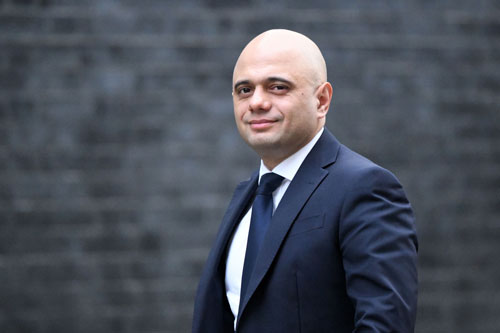Comprehensive Spending Review: City academics react
Experts at City, University of London provide analysis of the Comprehensive Spending Review
Academics from across City, University of London have provided analysis of the 2019 Comprehensive Spending Review (CSR) announced on Wednesday 4th September by Sajid Javid, Chancellor of the Exchequer.
Should the Chancellor have borrowed more?
Professor Michael Ben-Gad, Professor of Economics in City’s Department of Economics, said that the most interesting and indeed mysterious thing about today’s spending review is not what the money will be spent on, but how easy it will be for the government to borrow the extra £13.8 billion from capital markets.
He said: “As of today, the yield on a seven-year UK Government Bond is 0.29% and if the Chancellor chooses to (wisely) lock in today’s low rates he can float 30-year bonds at 0.96%.
“Assuming an inflation rate of around 2%, real rates of interest are negative – capital markets are paying to lend to the UK government. Under these circumstances, should Sajid Javid not borrow even more?”
Professor Ben-Gad noted that early every indicator and economic model suggests that last quarter’s negative growth was not a statistical anomaly and that the country is heading into recession.
However, he said the efficacy of countercyclical fiscal policy as a mechanism to ameliorate the business cycle remains controversial. Even if it does work, he stressed that a higher debt burden will need to be financed by taxes in the future.
Governments typically enjoy lower borrowing costs than even the largest companies because their debt is perceived to be less risky.
Professor Ben-Gad said:
“Could the government not borrow to invest through a sovereign wealth fund and use these arbitrage profits to offset the expected rise in spending as the population ages? Only if you imagine that government workers and their political masters have the expertise to maximise returns for taxpayers rather than political cronies and can resist the temptation to invest in projects that deliver electoral rather than economic dividends."
 “Sadly, the best investment opportunities may not always be found in marginal constituencies and while free bus passes and TV licenses are very nice, they will not help finance the enlarged debt.
“Sadly, the best investment opportunities may not always be found in marginal constituencies and while free bus passes and TV licenses are very nice, they will not help finance the enlarged debt.
Furthermore, according to Professor Ben-Gad [pictured, right], while the small increment to current spending is unlikely to raise interest rates, further increments might.
Should the Labour Party get the opportunity to implement its plan to raise spending by £250bn over the course of ten years, (along with its proposed £300bn share seizure and its programme of nationalisation), he believes we should expect interest rates to rise a lot more.
“Why are interest rates so unusually low? The flight to safety in response to global uncertainty is one possibility, though given the aging of populations throughout the developed world and the growth of populism, the assumption that the debt sold by these countries is risk-free may soon be tested once again.”
Javid: ‘repeatedly embarrassed’
Dr Gwilym David Blunt, a Lecturer in International Politics in City’s Department of International Politics, has been a regular commenter on UK and world politics in recent months.
He said: “One has to feel somewhat sorry for Sajid Javid. Since assuming one of the Great Offices of State he has been repeatedly embarrassed by Boris Johnson: he has had one of his closest advisors unilaterally sacked by Dominic Cummings and was made to look like a hypocrite over prorogation. Now, he has delivered a spending review under the shadow of a growing political crisis, after the Prime Minister spectacularly lost his majority by withdrawing the whip from two of the Chancellor’s predecessors and the other Tory rebels.
“The glory of announcing ‘the end of austerity’ has been tarnished by the recklessness of the Prime Minister. Javid might be reflecting on the wisdom of joining this particular government.”
Javid had roughly £15 billion with which to splash out and Dr Blunt said the Chancellor is spending as much as prudently possible by promising nearly £14 billion per annum in increases. Brexit preparation, the NHS, crime, education, and defence are the major beneficiaries of this spending.
“Yet, this is a rather thin pillow to soften the potential blow of a ‘no deal’ Brexit, especially as the UK economy seems perilously close to recession,” said Dr Blunt.
Is the Chancellor splashing the cash to counterbalance the negative fallout of any 'no deal' Brexit?
The impact on a General Election
“The real significance of this spending review is what it tells us about the imminent election campaign. Under Johnson and Javid the spending taps are open again. The aim is clear: draw back in Brexit Party voters and woo Labour voters in Brexit-backing constituencies.”
The Conservatives want to win more seats like Mansfield and not see a national repeat of the Peterborough by-election. Public spending on red meat issues like the NHS and police, while promising Brexit as soon as possible, are thought to be vote-winning policies.
Dr Blunt [pictured, right] said: “This is a risky gamble. John McDonnell’s response to the Chancellor made the simple but forceful point: the Tories are responsible for the declines in police numbers, education funding, and the like. Voters may not have very long memories but expecting them to forget the last decade of UK politics is rather optimistic."
“At the same time, courting a ‘no deal’ Brexit while promising increased public spending puts the Conservative Party’s crucial reputation for fiscal prudence under considerable stress. A fact bizarrely confirmed by the pound rallying after a Conservative government lost its majority."
"It boggles the mind that there are whispers in the City that Corbyn might be better for business, but we live in strange days.”
